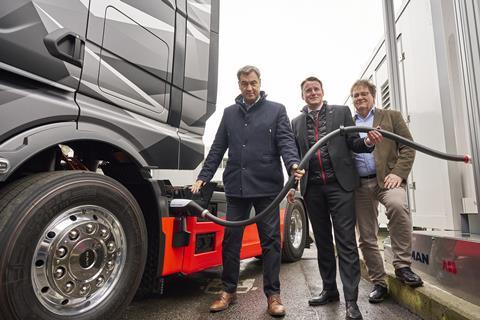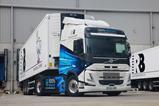ABB E-mobility and MAN have successfully demonstrated the potential of megawatt charging for electric trucks with the premiere of their Megawatt Charging System (MCS). This demonstration, which took place at MAN’s development centre in Munich, marked the first public showcasing of the MCS technology in Germany.

During the demonstration, the MAN eTruck was charged with over 700kW and 1,000 Amps at an MCS Charging station provided by ABB E-mobility. The event was attended by Bavarian Minister President Dr. Markus Söder, who highlighted the significance of such innovations for the future of mobility, emphasising the importance of ecological and economical e-mobility developments in Bavaria.
The introduction of megawatt charging represents a significant step forward in the transition towards climate-friendly mobility, particularly in long-distance transport and loading scenarios. The technology aims to address the need for rapid charging solutions during legally mandated driving time breaks, thereby complementing existing depot charging infrastructure.
Both ABB E-mobility and MAN underscored the importance of collaborative efforts in advancing sustainable transport solutions. Michael Halbherr, CEO of ABB E-mobility, emphasised the necessity of sustainable, reliable, and economical solutions for achieving the energy transition in transport, while Alexander Vlaskamp, CEO of MAN Truck & Bus, stressed the urgency of expanding charging infrastructure. He is calling for the establishment of 30,000 MCS charging points in Europe by 2030, with around 4,000 in Germany alone. He urged swift action from policymakers to support electrification efforts and build trust among customers.
The MCS standard, designed for charging capacities of up to 3.75MW at 3,000A, promises significant improvements in charging times. Once finalised, it is expected to enable charging capacities exceeding one megawatt. This advancement represents a substantial leap from current CCS standard charging stations, which offer a maximum capacity of 400kW at 500A.


















